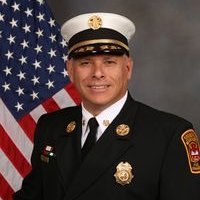Take My Council, Please: The Prodigal Municipal Legislature Returns…
SPRINGFIELD—Fitfully, the City Council continues to come back.
On Monday, the municipal legislature held its first regular meeting in chambers since the COVID-19 pandemic virtualized Springfield government. This was not the body’s first outing in real life or even its first in the chamber. It held one regular meeting in a conference room. There was a permits hearing in the chamber last month, but the Council is not sitting as the municipal legislature when granting permits. Still it was one of last cities in the state to return in person.
Aside from the plexiglass, masks and a few participants zooming in, the Council was almost as it was. The items were familiar. A clutch of bills was on deck. Utility reports awaited a vote—or a hairy eyeball. Even Santa Claus Parks & Facilities Director Pat Sullivan was there with a bag of funding goodies that every good pol could tout on the stump next year.
Ward 1 Councilor Maria Perez was absent. Councilors Malo Brown, Kateri Walsh and Tracye Whitfield participated virtually. The meeting was also the first Lavar Click-Bruce attended, having taken office the week before. Click-Bruce won a special election to fill the vacant Ward 5 seat on September 13.
The meeting opened with reports of committee. Whtifield, an at-large councilor, reported a Finance Committee meeting she chaired that probed the city’s lackluster dispersal of COVID-19 relief funds. The General Government chair, Ward 2 Councilor Michael Fenton, reported favorably on nominees to the Water & Sewer Commission (WSC). Ward 6 Councilor Victor Davila, who chairs Public Safety, provided and update on implementation of the Police Commission. Few appear thrilled.

Springfield Police Commission status in a nutshell. (GIF via Lionsgate TV)
The Council confirmed Vanessa Otero and Matthew Donnellan to terms on the WSC. Donnellan is a longtime employee of the commission and Otero is an incumbent. The Commission is corporate body separate from the city. The mayor nominates and councilors confirm its Board. Council confirmation is necessary because state law, rather than the charter, governs it.
Comptroller Pat Burns delivered no surprises in the July Revenue & Expenditure report. The Council approved all utility reports except one for Newbury Street. This item was a refile, but a committee hearing on its prior incarnation never happened. The Council returned it to committee.
The Council also approved a Rules of the Road petition to allow valet parking on Worthington Street. Public Works czar Chris Cignoli said the city had been allowing valet parking week to week for restaurants along downtown’s main dining strip. On the Council could permanently authorize it.
At-large Councilor Justin Hurst asked if the city recovered any revenue from the scheme. Cignoli said the city would only gets a cut if the valet parkers need to use metered spaces. As meters are not active after 6pm, Cignoli did not predict much revenue.
Several big-ticket financial items were on deck. Sullivan, the parks chief, presented a $3 million grant to renovate the grandstand at Forest Park. The project will also rehab the field. Work should not interrupt use of the ball field. Ward 8 Councilor Zaida Govan asked about other ballfields in the city. Sullivan said they are all on a cycle of rehabilitation.
Councilors also greenlit grants of $90,000 and nearly $149,000 for, respectively, the open gym program and a dam on Breckwood Boulevard. A donation of under $300 for a McKnight park project also passed.
Housing Director Gerry McCafferty presented two programs to develop vacant lots and revamp properties. The $2 million home building program aims to build affordable homes on vacant lots in Old Hill. It passed unanimously.
A separate program would fund rehabilitation and sales of homes in receivership. It passed but with some dissent. Responding to questions from the council, McCafferty said it was unlikely there would be profit. The $500,000 grant will subsidize the lower price points. Any theoretical gains would go back into the program. She told councilors the Law Department, which runs the receivership program itself, would be able to answer questions about which properties this would affect.
The item passed 10-2 with Councilors Brown and Sean Curran in opposition.
Councilors accepted grants of nearly $993,000 and over $256,000 for programs at the city’s dispatching center.
The Council approved two grants for $300,000 each for parking studies near the casino and for the Highland rail trail. Two grants from the library trusts gained approval. One, for $180,000, will fund the acquisition of library materials. Another, for $145,000, will defray staff costs.
Eight grants under $50,000 each for the Fire, Library & Parks departments received approval simultaneously. Councilors also authorized $14,000 in fiscal year 2022 bills from the clerk to be paid with money from the FY2023 budget’s contingency fund. The body also approved a new memorandum of understanding with ValleyBike, the region’s bikeshare program. It includes a higher fee for the city.
The Council signed off on two abutting lot transfers on Forest Hills and Donbray roads. A pair of zoning changes were read into the record, but required not Council action.
Before councilors was also a trio of ordinances. Only one advanced.

Commissioner Calvi presented the dumpster permit ordinance as a fire safety issue. (via Twitter/@ChiefBJCaliv)
The first shifts the permit requirements on large, rented dumpsters. Fire Commissioner B.J. Calvi explained that currently property owner request the permit. Many never do. His concern, he said, is dumpsters often appear in locations not conducive to fire safety. For example, if a fire started in a dumpster too close to structures, it could spread. The ordinance would shift the permit-pulling burden to the dumpsters’ owners.
“There are many people that don’t know that this exists,” Calvi said. “The haulers all know they need a permit in the city of Springfield.”
Councilors appeared wary or at least unclear all the ordinance did was shift the burden from dumpters renter to the owner. The bill went to committee on a 10-2 vote. Councilors Davila and Fenton dissented.
Fenton also had an ordinance, months in the making. With pedestrian deaths and speeding rising concerns across Springfield, officials have scrambled for solutions. Fenton’s bill would create a process for residents and property owners to petition for speed humps to slow traffic. The elaborate proposal allow 2/3 of voters within a certain area to seek such an installation. After notifying residents on adjacent streets—onto whose roads drivers may divert—a temporary hump could go in.
A permanent installation would follow a trial, input from city agencies and residents and a final Board of Public Works recommendation. The Council would make the final decision. Responding to questions, Fenton clarified that some streets would be too big or too busy to qualify with state rules as a guide.
The body sent the item to committee as the meeting closed in on 10pm. At that time, the agenda stops and the Council turns into a pumpkin.
Council President Jesse Lederman stepped down from the dais the present the final bill. His ordinance, requires the clerk to post a list of Springfield boards and commission online along with when the expiration of members’ terms. This posting would also display each panel’s purpose and appointing authority. It also orders up a application interested residents could fill out and send to appointing entities.
In addition to broadening transparency, the ordinance effectively leans on appointing authority—especially the mayor—to fill vacancies across the city’s manifold boards, commissions and panels.
Lederman stressed his ordinance intrudes on nobody’s appointing power. Under Springfield’s charter, the mayor appoints nearly all boards. The Supreme Judicial Court confirmed the Council could reorganize departments and boards, but the mayor’s appointment prerogative has never been in doubt.
Nothing would bar appointing authorities from looking outside the applicant pool, but the application is an invitation to public participation.
“You shouldn’t have to know somebody to be considered,” Lederman said.
At Councilor Davila’s suggestion, the Council adopted an amendment to clarify a section reviewing the application form and not completed applications.
Springfield Clerk Gladys Oyola told councilors posting the boards and commission membership should not be difficult. She can use the city’s municipal tracking software.
Councilor Hurst queried Lederman about whether the mayor has weighed in on the ordinance or concerns about chronic vacancies on some boards. Lederman replied that the Council has passed previously resolutions about the problems and yet it remains.
“I think the City Council has been quite clear,” he said.
The Council passed first step. Two more votes will be necessary before it goes to the mayor. A spokesperson for Mayor Domenic Sarno did not respond to a request for comment about where Hizzoner stands on the bill.
The return to in-person meetings in chambers has been a longtime coming and long overdue. Despite three members still zooming in, a quorum of the Council in one room was enough to grease the gears of government.
Although officials presenting agenda items in-person had to speak from a plexiglassed podium as though they were working a pawn shop counter, this too went smoothly. More importantly, appearing before the Council—the people’s representatives—is happening in body as well as electronic spirit. Once suspended for public safety and thence convenience, the spectacle of the Council’s convening authority is returning.



